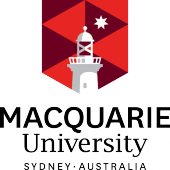Full description
Multicultural Australian English: The New Voice of Sydney (MAE-VoiS) is a project funded under the Australian Research Council Future Fellowship scheme. The aim of the project is to help us understand the speech patterns of young people from complex culturally and linguistically diverse communities across Sydney. Understanding how adolescents from different ethnicities use speech patterns to symbolically express their diverse sociocultural identities offers a window into understanding a rapidly changing Australian society.
Australia is one of the most ethnically diverse communities in the world yet the complex relationship between speech production and cultural diversity is largely unknown in 21st century multicultural Australia. Our current understanding of speech patterns in Australia is based on an Anglo-centric model that does not represent the community in which we live. Through this project we will generate an integrated and inclusive model of Australian English, based on our meticulous phonetic analysis of young people's speech. Project outcomes are expected to inform sociophonetic theories of variation, ethnicity, and identity. A unified model of Australian English that provides a structure to underpin advances in speech research at the intersection of phonetics/phonology, ethnicity, and society is critical for a deeper understanding of speech patterns in child language acquisition, atypical populations, second language learners, youth social cohesion; and for applications associated with immigration, refugee/asylum seeker integration, forensic speech science, national security, law enforcement, and social robotics.
The MAE-VoiS corpus comprises audio recordings of 186 teenagers from 38 language backgrounds who each engaged in a picture naming task and a conversation with a peer facilitated by a local research assistant. Participants also completed an extensive ethnic orientation survey, and their parents completed a demographic/language survey. Speakers were located in five separate areas in Sydney that varied according to the dominant language backgrounds of speakers in the communities (four non-English dominant areas – Bankstown, Cabramatta/Fairfield, Inner West, Parramatta; and one English dominant area – Northern Beaches).
Issued: 2024-04-11
Created: 2024-04-11
User Contributed Tags
Login to tag this record with meaningful keywords to make it easier to discover
- DOI : 10.25949/25572153.V1



